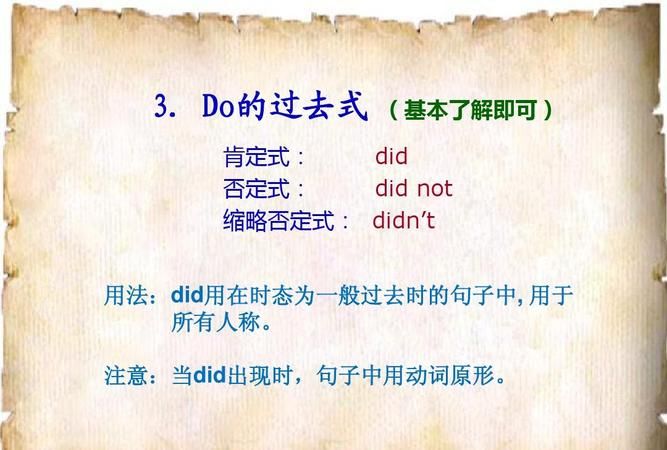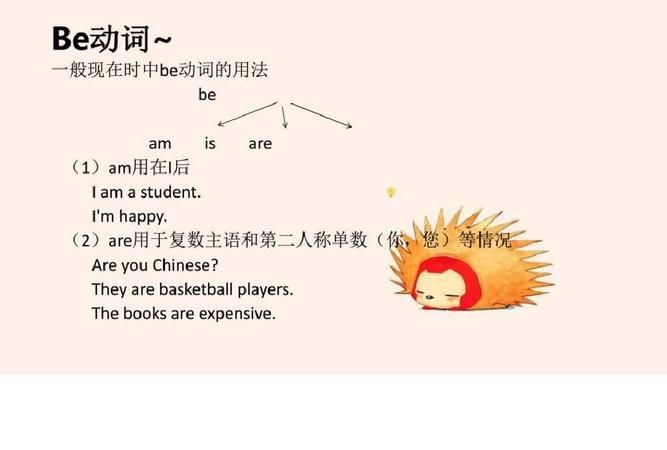本文目录
also的用法
简析also,too,as well和either用法
also,too,as well,either,作“也”讲,为副词.下面分别讲述:
一.too,also,as well:都用于肯定句,表示前者怎样后者也怎样.
too:一般放在句尾,可用逗号和前面的句子隔开,也可不用;
also:其位置大多放在be动词、助动词、情态动词之后,实义动词之前;
as well:其位置一般放在句尾,三者可以作同义句转换.例如:
You need to go shopping and I need to go shopping,too.
=You need to go shopping and I also need to go shopping.
=You need to go shopping and I need to go shopping as well.

also的用法总结初中
also表示也,又,下面我给大家整理了agree的用法 总结 ,希望大家喜欢!
also释义
adv. 也; 同样; 并且;
conj. 另外;
also的位置
also用于实义动词之前
They also agree with me.
他们也同意我的看法。
I also began to be interested in crickets.
我也开始对板球运动感到兴趣。
also用于be动词之后
I was also there.
我也在那儿。
He is also an American.
他也是美国人。
also用于第一个助动词之后
His sister has also gone to town.
他的妹妹也到镇里去了。
The leisure center has also proved uneconomic.
休闲中心业已证明利润不大。
also有时放在句首
Also, some students were tempted to add written comment of their own throughout the paper.
一些学生也冒险通过论文写出他们自己的评论。
I thought it was the perfect answer. Also, Tony and I had never done a historical subject.
我认为它是完美的答案。而且,托尼和我从没有作过历史科目。
also不能放在句末
注意:also一定不能放在 句子 的最后。
参见:《柯林斯COBUILD英语用法词典》
但是赵振才教授在他的《英语常见问题解答大词典》中列举了美国英语关于also放在句末的例子。
I must buy some bread also.
我还必须买一些面包。
They know him and I know him also.
参见:赵振才《英语常见问题解答大词典》
The son had gone also.
儿子也走了。
also用法
1.also是较正式的用词,多用于书面语,基本意思是“也”“还”,表示两件事的性质相近或两件事情发生的时间相同,也可表示刚说过的话也适用于另一个人或物。在句中起补充追加的作用。
2.also主要用于肯定句和疑问句。在书面语中,also偶可用在no,nothing或其他带有否定意义的词之前,而在否定词之后则不能用also,而要用either(但not also可用于反诘疑问句或修辞疑问句,偶尔也用于陈述句)。
3.also多位于实义动词之前,非实义动词或第一个非实义动词之后,有时可放在整个谓语动词之前,间或用于句末。偶尔为了加强语气, also还可放在句首。also在句中位置不同常会影响句子的意思。
4.not only ... but also 不但 ... 而且...
(1) not only … but also 应连接两个相对称的并列成分。
Not only Mr Lin but also his son joined the Party two years ago. (连接两个主语)
I not only play tennis but also practise shooting. (连接两个谓语动词)
He plays not only the piano but also the violin. (连接两个宾语)
They speak English not only in class but also in the dormitory. (连接两个地点状语)
(2)not only … but also 连接两个分句,并且 not only 位于句首时,第一个分句中的主语和谓语要部分倒装。例如:
Not only is this young man clever but also he is hardworking.
这个年轻人不仅聪明,而且勤奋。
(3)not only … but also 不能用在否定句中。
(4)not only … but also 连接两个主语时,谓语动词要和与其最近的主语保持人称和数的一致。例如:
(5)not only … but also 中的 not only 不能分开使用,但 but also 却可以分开使用。例如:
The area was not only hit by an unexpected heavy rain, but some bridges were also washedaway.
(6)not only … but also 连接两个并列成分时,可以省略 but 或 also ,也可以把 but also 都省略掉。例如:
I not only heard it but (also) saw it.
He was not only compelled to stay at home, (but) also forbidden to see his friend.
She not only finished the task ahead of time, (but also) she came to help us.
(7)也可用 but … too / as well 替代 not only … but also 中的 but also .例如:
She not only sang well but danced gracefully too (or as well)
(8)not only A but also B = B as well as A, 但前者的强调重点在 B ;后者的强调重点也在 B .(汉译时,要先译 as well as 后面的词)例如:
The child is not only healthy but also lively. (= The child is lively as well as healthy.)
这孩子既健康又活泼。
It concerns not only me but also you. (= It concerns you as well as me.)
这件事不但与我有关,而且也与你有关。
also, too, either 与 as well 的用法区别
这四个词均可表示“也”,其区别如下:
1. too 和 as well 多用于口语中,语气较轻,通常用于肯定句或疑问句,一般不用于否定句,且通常放在句末。如:
Ilike you too [as well]. 我也喜欢你。
Are they coming too [as well]? 他们也来吗?
too 有时也紧跟在主语后(注: as well 不这样用),此用法较正式。如:
I, too, know where he lives. 我也知道他住在什么地方。
注意:在 Me too, You too这类简略答语中,通常不用 as well或also。如:
A:I’m tired. 我累了。
B:Me too. 我也是。
2. also 比 too 和 as well 正式,一般也不用于否定句,它在句中的位置通常是紧靠动词,即放在行为动词之前,特殊动词之后。有时为了强调也放在句末(但不常见)。如:
He also came. / He came also. 他也来了。
She is young and beautiful,and also rich. 她年轻漂亮,而且有钱。
说明:also 有时用于句首(其后通常有逗号),相当于连词 and。如:
Also, his mother was dead. 再说,他母亲又过世了。
3. either(也)通常只用于否定句,且要放在句末。如:
Idon’t know, either. 我也不知道。
He hasn’t finished it, either. 他也还没有做完。
注意:有时在肯定句之后跟一个否定句,可能用 too,also。如:
He came, but she didn’t also came. 他来了,但她没有也一起来。
He went to Washington, but not to New York too. 他去了华盛顿,但并不是也去了纽约。
比较
He didn’t buy a computer, and she didn’t either. 他没买电脑,她也没买。
He bought a computer, but she didn’t too. 他买了台电脑,但她没有也买台电脑。
练习
用also, too, either填空:
1. I don’t like cold climates. I don't think you like it _________
2. My friends are going to college next year. I am going to college next year _______ .
3. My wife is a diligent engineer. I am a diligent engineer _______ .
4. I love swimming My son loves it __________ .
5. Today the weather isn't so good. It wasn't really good yesterday _________ .
6. I eat a lot more than an average person. My brother eats a lot _______ .
7. A bear can run very fast. A tiger runs very fast _________ .
8. I am not from Italy. My friend isn't from Italy __________ .
9. Paris is a big city. Madrid is a big city _________.
10. French is a difficult language to learn. Latin is a difficult language to learn _______。
also的用法总结相关 文章 :
1.
2. 关于also的用法及解释
3. not only but also的用法总结
4. pretend的用法总结
5. if句型的用法总结英语用法
6. 史上最全的not only...but also的用法
7. shall的用法总结
8. for的用法总结大全
9. Sure的用法归纳总结

also的位置和用法例句
also多位于实义动词之前,非实义动词或第一个非实义动词之后,有时可放在整个谓语动词之前,间或用于句末。偶尔为了加强语气,also还可放在句首。also在句中位置不同常会影响句子的意思。用作副词also,表示“也”,主要用于非肯定句,在句中的位置通常是紧靠动词,即放在行为动词之前,特殊动词之后。

also用于实义动词之前,如:Theyalsoagreewithme。他们也同意我的看法。also用于be动词之后,如:Iwasalsothere。我也在那儿。also用于第一个助动词之后,如:Hissisterhasalsogonetotown。他的妹妹也到镇里去了。

also有时放在句子的最前,如:Also,somestudentsweretemptedtoaddwrittencommentoftheirownthroughoutthepaper。一些学生也冒险通过论文写出他们自己的评论。

用作副词also例句:Thesofacanalsobeusedasabed.。这沙发也可以当床。IplaysquashandIalsoplaytennis.。我打壁球,也打网球。有时为了强调also也放在句末,但also的这种用法不是很常见。如:Iwentandshewentalso。我去了,她也去了。
also用于助动词前还是后动词
also一般放在实义动词前面,或者助动词后面.但是如果要表示强调,可以把also放在助动词前面,只是这种用法比较少.

以上就是关于also用在助动词之后用法 ,also的用法的全部内容,以及also用在助动词之后用法 的相关内容,希望能够帮到您。

